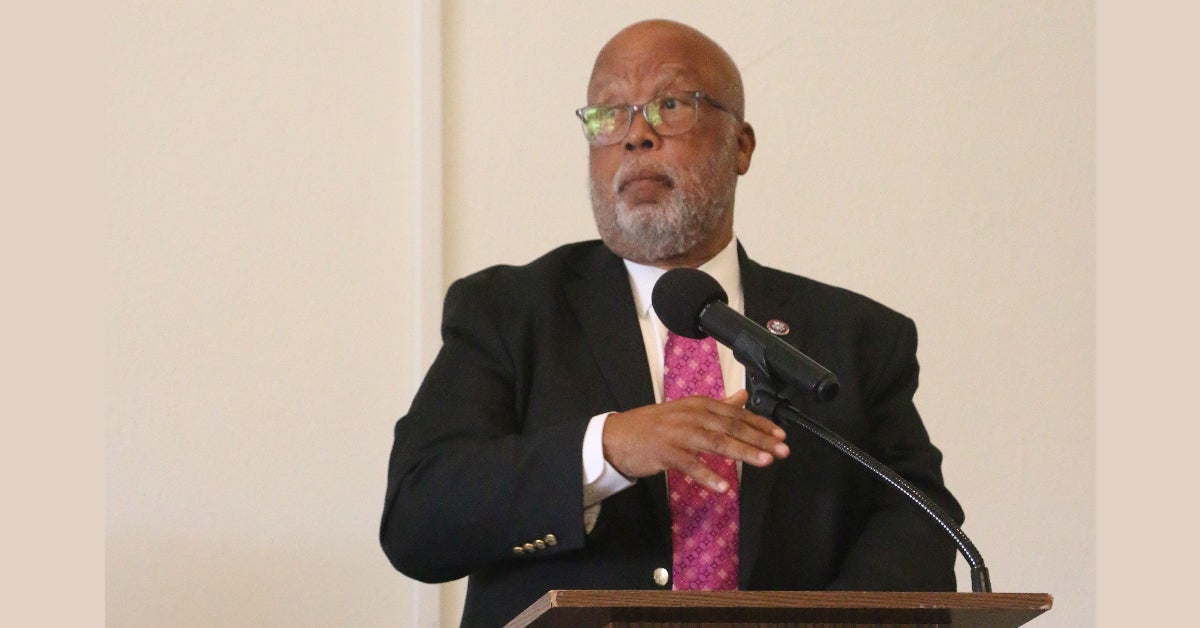Freedom House was hub for ‘students with a vision’
Published 11:20 am Thursday, October 2, 2014

Two unidentified men guard the Vicksburg Freedom House in the summer of 1964 in this photo from the Tougaloo College collection.
The summer of 1964 was sweltering with the heat of injustice.
More than 1,000 young “normal students with a vision” came to Mississippi in an effort to quench the black community’s thirst for freedom. Years of Jim Crow had left a bitter taste in the collective mouths of the post-reconstruction South, and it needed, they said, to be washed away.
In Vicksburg, as in many communities across the state, civil rights workers established a Freedom House at what was 1016 Hossley St., near the present-day intersection of Mission 66 and Clay Street.
Hossley Street was all but destroyed when Mission 66 was constructed.
There is no historical marker for the house that served as a school and community center where volunteers taught children and adults to read, planned voter registration drives, published their own newspaper and helped blacks find jobs.
Whites Citizens Councils across the state labeled the Freedom Summer students from Stanford, Yale, Harvard and other prominent and obscure universities as communists, criminals and perverts.
“We were not intending to break the law. We were doing lawful things,” said Richard N. Gould, an 84-year-old retired Methodist minister who came to Vicksburg during Freedom Summer.
Gould, who was a student at the Boston University School of Theology in 1964, represented the National Council of Clergy, tasked with spreading the message of civil rights among local preachers.
“Some of the pastors wouldn’t see me. Even Methodist pastors. There was one Methodist pastor who received me and we went into a back room where no one would hear us, and his dilemma, of course, was trying to stay and make a difference or go somewhere else,” Gould said.
Churches in the black community were very receptive, and on his first visit to Wesley United Methodist Church, Gould was asked to preach at the Sunday evening service.
“Perhaps some of the youth of the community can be given a new vision of the meaning of brotherhood, which they in turn can carry back into the white community. At any rate they are finding out that the volunteers here are normal students with a vision. They are not ‘beatniks’ perverts or otherwise ‘abnormal students,’” Gould wrote in a diary that is now part of the Wisconsin Historical Society’s digital collection.
Vicksburg saw dozens of young, white students working for civil rights and living with black families or at the Freedom House.
“A lot of people were coming and going, but I think 20 was about average at any given time,” said Fran O’Brien, a Freedom Summer worker who now lives in Frazier Park, Calif.
O’Brien was one of the Freedom House workers who went to Pleasant Green Missionary Baptist Church on July 23, 1964, to hear Martin Luther King Jr. speak on voter registration.
It had been barely a month since Klu Klux Klan members in Neshoba County killed civil rights workers James Earl Chaney, Andrew Goodman and Michael Schwerner when King made his appearance.
Five days later, she vividly remembers, a man with a heavy southern drawl called the Freedom House. In typical Southern fashion, he began the conversation by asking where she was from and how she liked Mississippi.
After the pleasantries were over, the man said everyone in the house had three days to get out before it was bombed.
O’Brien said she thanked him for his call.
“Listen,” the man said, according to O’Brien’s recollection to author Bruce Watson in his book “Freedom Summer.” “I said I’m gonna bomb y’all. And there ain’t gonna be no Freedom School and no freedom there, anyplace else.”
Again, O’Brien thanked the man.
“I understood you the first time. Was there anything else?”
“No,” the man said. “No. I don’t believe so, but I’ll call again.
“Oh feel free, O’Brien told him. “We’d love to hear from you. Thank you for calling and goodnight.”
The threats were frequent, but not constant, O’Brien said.
“It wasn’t five our six times a day like it was in some areas, and there were days that we didn’t have anything,” she said.
For all the causes our county champions today through charitable giving to organizations like the United Way, civil rights workers at the Vicksburg Freedom House were thanked with a stick of dynamite tossed in their window, but it wouldn’t come until October.





